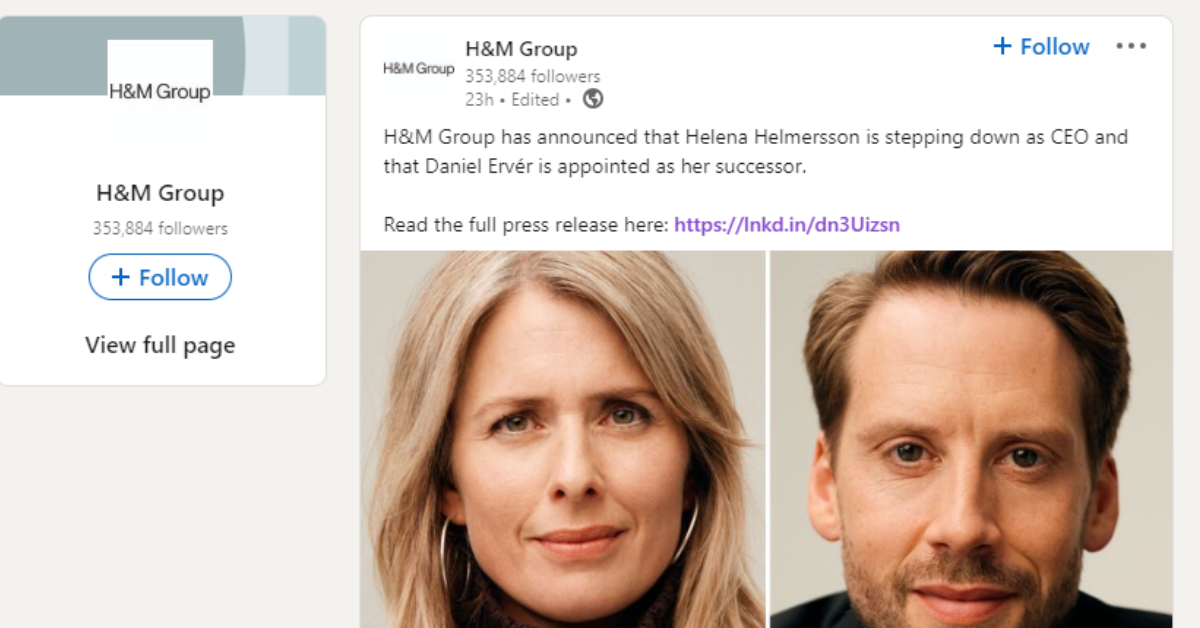Helena Helmersson has stepped down as CEO of H&M, after a notable 26-year tenure with the company. Her resignation comes amidst a challenging period for H&M, marked by declining sales and earnings. This mirrors a broader trend of women in high-profile leadership roles opting to leave their positions. Susan Wojcicki of YouTube and Marne Levine of Meta have made similar decisions. This pattern is evident beyond the corporate world, with political figures like Nicola Sturgeon and Jacinda Ardern also stepping down.
Helmersson’s departure is significant, given her lengthy service and the critical role she played at H&M. Her statement on LinkedIn reflects a mix of pride in her achievements and a candid acknowledgment of the intense pressures of her role. She mentions the privilege of leadership and the entrepreneurial spirit within H&M. However, she also notes the unprecedented challenges faced during her tenure as CEO.
The broader context
The resignation of Helena Helmersson is not an isolated event. It points to a concerning trend of women leaving leadership positions. McKinsey’s Alexis Krivkovich highlighted a worrying statistic: for every woman reaching director-level, two choose to leave. This trend threatens the progress made in gender equity and female leadership over the past decades.
Daniel Ervér, Helmersson’s successor, has a long history with H&M. However, his appointment raises questions about gender representation in corporate leadership. The departure of female CEOs and their replacement by male counterparts is a pattern that has been observed in other companies as well.
This trend raises concerns about the sustainability of efforts towards gender equality in leadership roles. The reasons cited for these departures—ranging from seeking new challenges to prioritizing family—reflect the complex decisions women face in their careers.
Looking ahead
The challenge ahead for H&M and similar companies is to address the underlying issues that lead to such resignations. This includes creating environments that support work-life balance, recognizing diverse leadership styles, and ensuring that progress in gender equity is not only achieved but sustained.
As companies navigate these changes, the role of successors like Daniel Ervér will be closely watched. Their ability to maintain the company’s values while addressing the challenges of modern retail will be critical. For H&M, this means continuing to innovate while staying true to its core business idea, which Helmersson believes is more relevant than ever.
Whether this step would lead to a reversal of the negative trend remains to be seen. In the current economic realities retailers might find it difficult to improve their top line.
—
Looking for your next hire in data or software? Get in touch with one of the PL Talents’ experts – we are the number one tech recruitment specialist in Germany.

